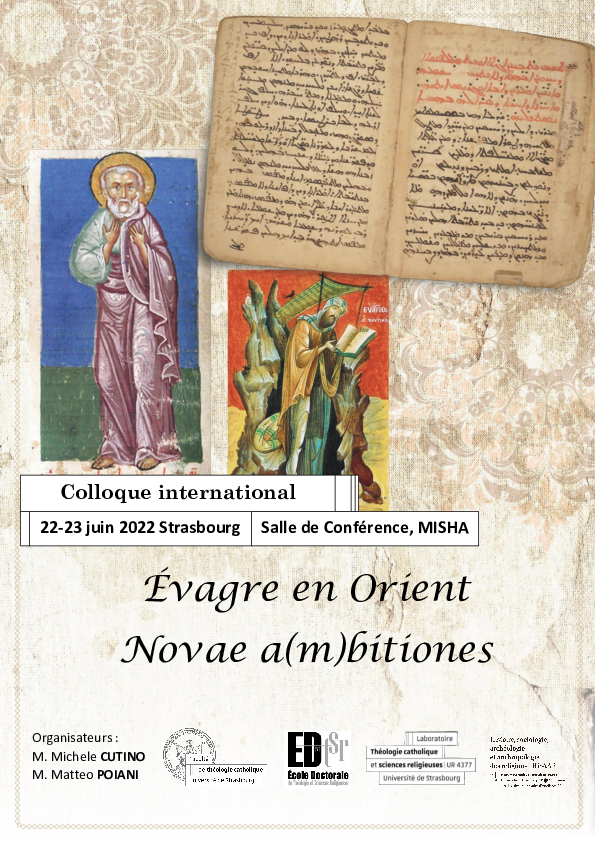L’étude d’Évagre dans l’Orient Chrétien est encore un travail à achever. Ce colloque veut poursuivre un petit mais ambitieux but : relancer les études syriaques et arméniennes sur Évagre, en prenant particulièrement en compte les commentaires aux Kephalaia Gnostika et les éditions critiques. Une troisième partie sera totalement dédiée à la réception d’Évagre dans les Églises Syriaques.
Les Kephalaia Gnostika d’Évagre ont connu une vaste diffusion dans l’Orient Chrétien, et, à l’exception d’une petite partie survécu en grec, ils nous sont disponibles grâce à la (deuxième) traduction syriaque, achevée vraisemblablement dans le VIème siècle. Antoine Guillaumont a montré le siècle dernier la fiabilité de cette deuxième version, et en même temps sa diffusion réduite. C’est la première version qui a été retenu fidèle à Évagre par la tradition, et ainsi ait été traduite en syriaque et arménien et commentée plusieurs fois. L’importance des Kephalaia Gnostika n’est pas seulement dans le texte même et dans les commentaires mais aussi dans la réception tardive visible à travers les écrits des mystiques syro-orientaux. Toutefois, l’attention de ce colloque ne se pose pas exclusivement sur le Kephalaia Gnostika mais aussi sur les manuscrits qui contiennent Évagre et sur les éditions critiques qui seront achevées bientôt.
Cette rencontre, après deux ans de pandémie COVID, permet la discussion des thèmes sur lesquelles les savants discutent depuis la moitié du XXème siècle. Il faut donc recommencer les études évagriennes dans les domaines syriaques et arménien, tout en sachant que « la science engendre la science » (Kephalaia Gnostika II,81, S1).
The study of Evagrius in the Christian East has yet to be completed. This meeting aims for a specific but ambitious goal: to revive the study of Evagrius in the Syriac and Armenian traditions, with a particular focus on the commentaries to the Kephalaia Gnostika and the critical editions. A third panel will be totally dedicated to the reception of Evagrius in the Syriac Churches.
Kephalaia Gnostika of Evagrius widely circulated in the Christian East, and, except for a small part surviving in Greek, they are available to us through the (second) Syriac translation, probably completed in the sixth century. Last century, Antoine Guillaumont has shown the reliability of this second version, while pointing out its limited diffusion. It is the first version that has been regarded faithful to Evagrius’ thought by the tradition, and accordingly it has been translated into Syriac and Armenian and commented on several times. The importance of the Kephalaia Gnostika does not lie only within the text itself and in its commentaries but also in the later reception visible through the writings of the East-Syriac mystics. However, the focus of this meetings is not exclusively on the Kephalaia Gnostika but also on the manuscripts which contain Evagrius’ works and on the critical editions which are currently being prepared.
This meeting, after two years of the COVID pandemic, will set the stage for a discussion of long debated themes since the mid 20th century. It is therefore necessary to resume Evagrian studies in the Syriac and Armenian domains, knowing that “science begets science” (Kephalaia Gnostika II, 81, S1).
Pour le lien zoom, veuillez contacter/ For the zoom link, please send an email to
matteo.poiani@etu.unistra.fr


